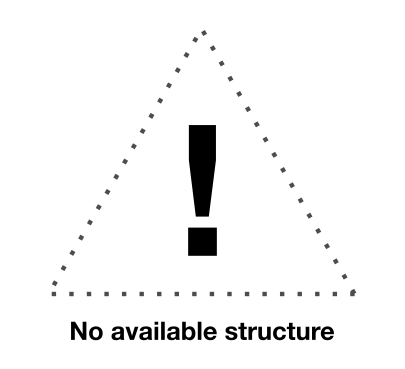Q4KLN0
Gene name |
Sdcbp2 |
Protein name |
Syntenin-2 |
Names |
Syndecan-binding protein 2 |
Species |
Rattus norvegicus (Rat) |
KEGG Pathway |
rno:311532 |
EC number |
|
Protein Class |
|

Descriptions
Autoinhibitory domains (AIDs)
Target domain |
101-273 (PDZ tandem) |
Relief mechanism |
PTM |
Assay |
|
Accessory elements
No accessory elements
Autoinhibited structure

Activated structure

1 structures for Q4KLN0
| Entry ID | Method | Resolution | Chain | Position | Source |
|---|---|---|---|---|---|
| AF-Q4KLN0-F1 | Predicted | AlphaFoldDB |
1 variants for Q4KLN0
| Variant ID(s) | Position | Change | Description | Diseaes Association | Provenance |
|---|---|---|---|---|---|
| rs198465838 | 82 | I>V | No | EVA |
No associated diseases with Q4KLN0
2 regional properties for Q4KLN0
| Type | Name | Position | InterPro Accession |
|---|---|---|---|
| domain | PDZ domain | 110 - 192 | IPR001478-1 |
| domain | PDZ domain | 195 - 271 | IPR001478-2 |
Functions
4 GO annotations of cellular component
| Name | Definition |
|---|---|
| cytoplasm | The contents of a cell excluding the plasma membrane and nucleus, but including other subcellular structures. |
| nuclear speck | A discrete extra-nucleolar subnuclear domain, 20-50 in number, in which splicing factors are seen to be localized by immunofluorescence microscopy. |
| nucleolus | A small, dense body one or more of which are present in the nucleus of eukaryotic cells. It is rich in RNA and protein, is not bounded by a limiting membrane, and is not seen during mitosis. Its prime function is the transcription of the nucleolar DNA into 45S ribosomal-precursor RNA, the processing of this RNA into 5.8S, 18S, and 28S components of ribosomal RNA, and the association of these components with 5S RNA and proteins synthesized outside the nucleolus. This association results in the formation of ribonucleoprotein precursors; these pass into the cytoplasm and mature into the 40S and 60S subunits of the ribosome. |
| plasma membrane | The membrane surrounding a cell that separates the cell from its external environment. It consists of a phospholipid bilayer and associated proteins. |
4 GO annotations of molecular function
| Name | Definition |
|---|---|
| identical protein binding | Binding to an identical protein or proteins. |
| phosphatidylinositol-4,5-bisphosphate binding | Binding to phosphatidylinositol-4,5-bisphosphate, a derivative of phosphatidylinositol in which the inositol ring is phosphorylated at the 4' and 5' positions. |
| protein heterodimerization activity | Binding to a nonidentical protein to form a heterodimer. |
| protein homodimerization activity | Binding to an identical protein to form a homodimer. |
1 GO annotations of biological process
| Name | Definition |
|---|---|
| cell population proliferation | The multiplication or reproduction of cells, resulting in the expansion of a cell population. |
7 homologous proteins in AiPD
| UniProt AC | Gene Name | Protein Name | Species | Evidence Code |
|---|---|---|---|---|
| Q9H190 | SDCBP2 | Syntenin-2 | Homo sapiens (Human) | SS |
| O00560 | SDCBP | Syntenin-1 | Homo sapiens (Human) | EV |
| Q99JZ0 | Sdcbp2 | Syntenin-2 | Mus musculus (Mouse) | SS |
| O08992 | Sdcbp | Syntenin-1 | Mus musculus (Mouse) | SS |
| O35430 | Apba1 | Amyloid-beta A4 precursor protein-binding family A member 1 | Rattus norvegicus (Rat) | EV |
| O35431 | Apba2 | Amyloid-beta A4 precursor protein-binding family A member 2 | Rattus norvegicus (Rat) | SS |
| Q9JI92 | Sdcbp | Syntenin-1 | Rattus norvegicus (Rat) | SS |
| 10 | 20 | 30 | 40 | 50 | 60 |
| MSVLYPSLED | LKVGQVIQAQ | ARASPMMPTV | MPTLPASMAS | APPLSELYPN | LAELESYMGL |
| 70 | 80 | 90 | 100 | 110 | 120 |
| SLSSQEVQKN | LSQIPDGDNM | VITSPGPGQV | TAPVSGNDLG | VLRAEIKPGV | REIHLCKDER |
| 130 | 140 | 150 | 160 | 170 | 180 |
| GKTGLRLQAV | DKGLFVQLVQ | ANTPASLVGL | RFGDQILQID | GCDCAGWSTH | KAQKALKKAS |
| 190 | 200 | 210 | 220 | 230 | 240 |
| AEKIVMVVRD | RPFQRTVTMH | KDSSGQVGFF | IKKGKIVSVV | KGSSAARNGL | LTNHYVCEVN |
| 250 | 260 | 270 | 280 | 290 | |
| GQNVIGLKDK | KIIEILTTAG | NVITLTIIPT | VIYEHMIKKL | SPLLLHHTMD | HSIPDT |